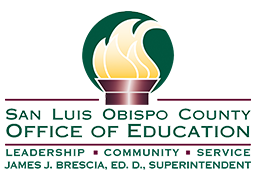Williams Legislation
The Eliezer Williams, et al., vs. State of California, et al. (Williams) case was filed as a class action in 2000. The basis of the lawsuit was that the agencies failed to provide public school students with equal access to instructional materials, safe and decent school facilities, and qualified teachers. The case was settled in 2004. State legislators passed five pieces of legislation to implement the terms of the settlement known as the “Williams Settlement Legislation.”
The Williams Settlement Legislation seeks to ensure that all students have equal access to the basics of a quality education:
- Textbooks and instructional materials
- Safe and decent school facilities
- Qualified teachers
- Accurate reporting on the annual School Accountability Report Card (SARC)
- A Uniform Complaint Procedure (UCP) for the reporting of alleged violations
For more information, visit https://www.cde.ca.gov/eo/ce/wc/.
The Williams Settlement Legislation requires county superintendents of schools to monitor and report on schools eligible for Comprehensive Support and Improvement (CSI) and Additional Targeted Support and Improvement (ATSI) based on the 2019 California School Dashboard; and/or schools with fifteen percent or more teachers who did not possess a valid and clear or preliminary teaching credential in 2020-2021. The California Department of Education (CDE) provides the list of schools throughout the state that are eligible for monitoring.
County superintendents are responsible for:
- Conducting annual visits during the first four weeks of the school year to determine the sufficiency of textbooks and instructional materials in the core subject areas of English language arts, mathematics, science, and history-social science for elementary and secondary schools, and foreign language and health for secondary schools only
- Conducting school facility inspections to determine good repair status
- Reporting data regarding teacher misassignments and vacancies
- Verifying the accuracy of the School Accountability Report Card (SARC) relevant to instructional materials and facilities maintenance
- Reporting findings annually to the governing board of each school district, the county board of education, and the county board of supervisors
The California Department of Education (CDE) provides the list of schools throughout the state that are eligible for monitoring.
The Williams Settlement Legislation requires that county superintendents collect quarterly reports on the number of Williams-related complaints filed with school districts and whether they have been resolved.
California Education Code requires Local Educational Agencies to post Williams Settlement Legislation Uniform Complaint Procedure (UCP) notices in all classrooms at each school informing parents/guardians, pupils, and teachers of their rights to file a complaint about possible insufficient instructional materials, unclean or unsafe school facilities, and/or teacher vacancies or misassignments.
The following sample notices may be customized to provide specific information on how complaints can be filed at a school district. Additional information about UCP monitoring is available on the California Department of Education website at: http://www.cde.ca.gov/re/cp/uc/ucpmonitoring.asp
Sample UCP classroom notice
Sample Spanish UCP classroom notice
Sample UCP form (English version)
Sample UCP form (Spanish version)
Contact
- San Luis Obispo County Office of Education
- Office of James J. Brescia, Ed.D.
- 3350 Education Drive
- San Luis Obispo, CA 93405
- Tel: 805-543-7732
- Contact SLOCOE
- Contact Webmaster
